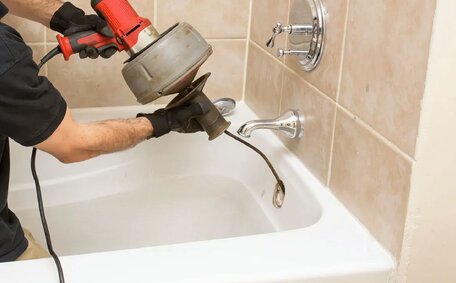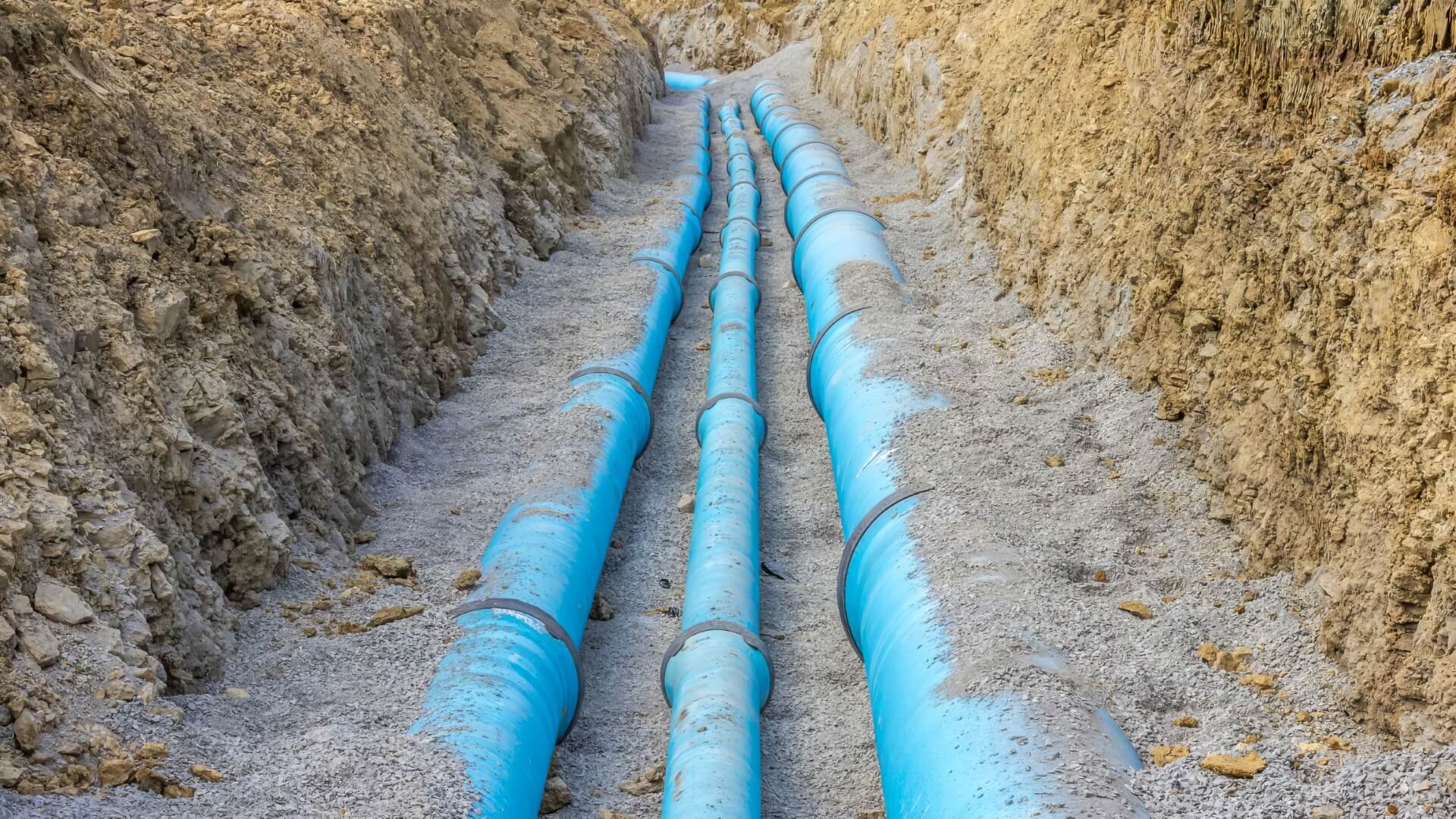Understanding What Causes Blocked Sinks
Blocked sinks typically arise from materials accumulating within the pipes, narrowing the passage and impeding water flow.
Kitchen sinks often clog due to food scraps, cooking oil, and fats clinging to pipes over time. Hair and debris accumulation can lead to significant blockages in the plumbing system. Flushing solids like wet wipes and tissue paper can rapidly obstruct drains.
Some household habits can heighten the risk of clogging your kitchen sink. Avoid using the sink for inappropriate waste items to prevent the rapid accumulation of obstructive materials. Understanding the main causes is crucial to preventing future blockages in your drain through behavioural changes and regular maintenance.
Allowing cooking byproducts like food particles, oil down to build up inside pipes rather than collecting and properly discarding them leads to plumbing issues as water down your pipes slows. Strain waste water and catch food scraps to keep your kitchen sink drain pipes free of organic matter and solids, thereby preventing build-up when washing dishes.
Properly Disposing of Drain-Clogging Items
Food Waste
A simple measure is to ensure all food items are scraped into your garbage bin instead of allowing them to enter kitchen sink drains. To prevent a seal over drain openings, for meat, fish scraps, and too much toilet paper, securely wrap them then dispose into outdoor general rubbish bins rather than letting them slip into drain.
Compost organic waste like vegetables, eggshells, coffee grounds, and teabags whenever possible, or using garbage disposal strategies to manage food residues. Educate all need in your house, including teaching children to throw them using these some most impactful methods for maintaining clear pipes.
Oils and Grease
Once containers of waste are full, ensure they find their way into your garden garbage bins rather than allowing waste water to be washed down your sink.
Hair Buildup
Installing and Using Drain Strainers
Drain strainers trap debris like leaves and twigs, preventing their buildup and potential clogs. Strainers are essential preventative tools that catch food debris and solids, allowing water to pass through while safeguarding against blocked drain problems.
Types of Drain Strainers
Sink strainers are available in various designs to suit different sink types and waste, filtering out particles. Some strainers have lift-out baskets for easy debris removal, while others like vortex or centrifugal types use water flow to isolate waste.
Selection and Use Tips
For instance, flat strainers are ideal for bathroom vessel sinks. Measure your sink to guarantee the strainer fits correctly. Educating household members on appropriate use promotes plumbing system protection.
To work optimally, strainers must be maintained by regularly removing caught food particles so that water can pass into kitchen rubbish bins before reinserting.
Regular Maintenance to Clear Sink Drains
Establishing routine maintenance helps to clear clogged sink drains by regularly flushing pipes and removing substances before major obstructions occur. Simple drain cleaning methods, often better than harsh chemicals, include pouring hot water mixed with biodegradable cleaner down drain to dissolve minor buildups and maintain an unimpeded flow.
A baking soda and vinegar solution can aid maintenance and protect against sediment in hot water systems. Finish by running water to clear out the drain for a full minute.
Pouring 4-5 cups of hot water down affected drains weekly can help melt and flush away any fatty deposits that might cause blockages. For thorough cleaning, mix equal parts baking soda and white vinegar to dissolve tough clogs.
Using a plumber’s snake monthly to remove materials like hair and food scraps is an effective strategy against recurrent clogs. Alternatively, a straightened wire clothes hanger can be used to hook and remove debris, providing a useful drain cleaning method. Remember to catch and dispose extracted items into rubbish bins.
Consistently using these methods can prevent blockages and save on costly repairs. It’s crucial to share tips to prevent clogs and educate everyone at home on proper maintenance techniques.
Chemical and Boiling Water Flushing
Pouring boiling water down the drain is an eco-friendly method to dissolve oil, grease, and food waste to prevent clogs. The heat liquefies accumulated fat oil grease, and you’ll find it helps to break down materials for safe passage into your drainage system instead of forming solid blockages down sink.
To thoroughly cleanse and address clogged drains, carefully pour a mixture of baking soda followed by vinegar. The reaction produces bubbles and heat that dissolve sticky residues. Let the mixture sit for 5-10 minutes before running hot tap water for 60 seconds to rinse away any clogged drain.
Weekly flushing with boiling water will help keep pipes clear of obstructions. For serious blockages, avoiding harsh chemical cleaners that could harm pipes is advisable. For blocked pipes requiring more than a DIY fix, seek professional drain unblocking services offering localised jet flushing and advanced hydrojet cleaning for thorough resolution without damaging plumbing.
Physical Clearing with Plungers or Snakes
Begin by sealing the overflow hole with a damp cloth, then fill the basin with enough water to cover the drain opening.
Conclude the unclogging by running hot water to ensure a clear flow through the pipes.
For deeper obstructions, insert an auger/plumber’s snake 3-4 feet down the pipe while slowly rotating the handle. Once resistance is felt, twist the snake to break up clog materials and retract slowly, so you can get rid of the obstruction for a clear drain once again.
Store tools within reach under sinks for effortless routine maintenance.
Educating household members on appropriately executing these techniques enables quick physical drain clearing during initial stages of obstruction before professional assistance is required. However for severe or recurring blockages, experts provide specialised hydrojet cleaning for lasting solutions.
Knowing When to Call a Professional Plumber
Calling an emergency plumber is often vital, especially when faced with a stubborn drain blockage from cooking grease, despite diligent drain care. Contact reputable experts like Penshurst Plumbing for multiple clogs, which might suggest tree roots or stubborn blockages.
Signs of a blocked drain requiring professionals include:
- Water pooling in your bathroom and kitchen areas, around sinks, tubs, or the shower drain
- Multiple fixtures backing up despite plunging attempts
- Unusual gurgling noises from pipes when not in use
- Visible water damage beneath sinks or vanities
- Foul sewage odours emitting from drains
- Sinks taking longer than usual to drain
- Reappearing clogs days or weeks after clearing
Professional equipment such as hydrojetters or drain augers, provided by companies like Penshurst Plumbing, are best suited to remedy congestion when signs of blocked drains are evident. High-pressure water jetting scours pipe walls before vacuum extraction. Lengthy cabled augers then remove lodged debris.
For assistance with your blocked drains or urgent pipe repair, I do contact our team immediately online or call 1300 349 338. With decades of expertise clearing the most stubborn blockages, we restore smooth drain function for the long term.






